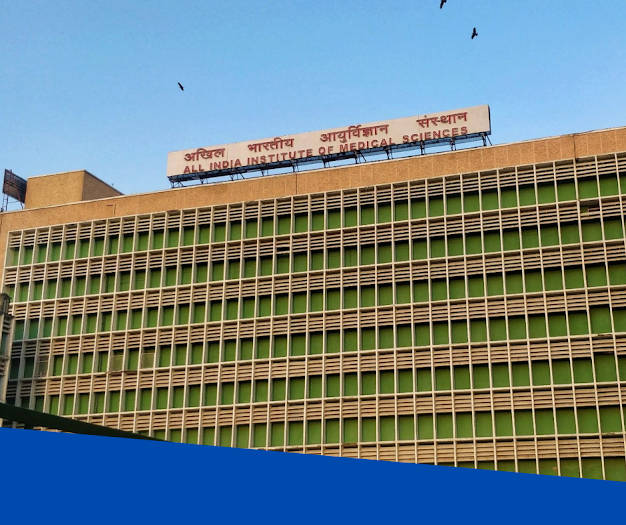AIIMS DELHI WILL BE EQUIPPED WITH A 5G NETWORK BY JUNE 30
In a major development in the field of healthcare, AIIMS Delhi has decided to equip itself with a 5G network by June 30, 2023.
This decision has been
taken to enable the maximum utilization of modern communication technology for
patient care, teaching, research, and good governance. The move is expected to
help AIIMS Delhi provide better connectivity, faster data access, and real-time
access to patient data.
Committee Formation for Quick Implementation
To expedite the
process of implementing the 5G network, a five-member committee has been
formed. The committee will be headed by Prof. Vivek Tandon from the Department
of Neurosurgery at AIIMS Delhi. Other members of the committee include Dr.
Vivek Gupta from the computer facility, supervising engineer Jitendra Saxena,
Dr. Vikas from telecommunications as a member secretary, and Sunita Cherodath,
senior deputy director general from the Department of Telecommunication, as a
special invitee.
5G Network
The primary objective
of implementing the 5G network at AIIMS Delhi is to enable robust mobile and
data connectivity inside the buildings. The move is aimed at improving patient
care, teaching, research, and good governance. According to the director of
AIIMS Delhi, Prof. M. Srinivas, good mobile connectivity is essential for the
smooth functioning of the institute, which has a daily footfall of
approximately 50,000 people.
Benefits of a 5G Network
The implementation of
the 5G network at AIIMS Delhi is expected to offer several benefits. One of the
major benefits is that it will enable real-time access to patient data, which
will help healthcare professionals make informed decisions about patient care.
Faster data access and robust mobile connectivity will also improve the
efficiency of various departments, including administration, research, and
teaching.
Another significant
advantage of the 5G network is that it will enable AIIMS Delhi to implement
casualty and eICU solutions across its main and outreach campuses, such as NCI
Jhajjar. This will enable senior faculty to provide expert advice during
off-duty hours, vacations, and other times. The 5G network will also help
improve the security of the institute by enabling real-time monitoring of the
premises.
Challenges of Implementing the 5G Network
While the
implementation of the 5G network at AIIMS Delhi is expected to offer several
benefits, there are some challenges that need to be addressed. One of the
primary challenges is the cost of implementing the network. The installation of
5G network infrastructure requires a significant investment, and AIIMS Delhi
will have to bear this cost.
Another challenge is
the availability of 5G spectrum. Currently, 5G spectrum is not available in
India, and the government has yet to auction it. This means that AIIMS Delhi
may have to rely on private players to provide the 5G network infrastructure.
In conclusion, the implementation of the 5G network at AIIMS Delhi is a significant development in the field of healthcare. It is expected to improve patient care, teaching, research, and good governance. The move is aimed at providing better connectivity, faster data access, and real-time access to patient data.
While there are some challenges that need to be addressed, the benefits of implementing the 5G network far outweigh the challenges. The move is expected to revolutionize healthcare in India and set a new standard for medical institutions across the country
For the latest Tech News Follow One1ClickDownload on Twitter, Facebook,
Reddit


